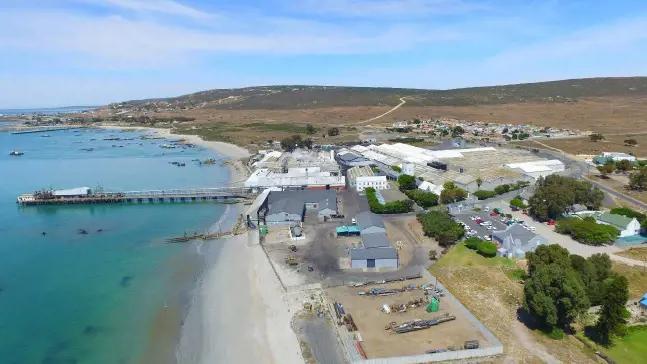Lucky Star Ltd, (Lucky Star), intends to lodge a variation application for their current AEL (Ref No. WCWD006) in terms of the National Environmental Management: Air Quality Act 39 of 2004 (NEM: AQA) with the West Coast District Municipality. Lucky Star is the largest participant in the domestic pelagic fishery and currently operates across the entire value chain. It is the largest direct employer in the Oceana Group employing 2199 individuals in 2022, having secured all these positions with salary and wage increases at or slightly above inflation in 2023.
Lucky Star contributed approximately R100 million in direct tax revenue to the South African economy while staff tax amounted to almost R500 million. Lucky Star further contributed R 2 billion through purchases from South African suppliers and supported 30 black-owned small enterprises in neighbouring communities through their enterprise development and supplier development program in the West Coast and partnered with a black female-owned SMME to implement the program. During the 2022 financial year Lucky Star spent R1 597 244 on supplier and enterprise development. Further Lucky Star has spent in excess of R20 million in upgrades to make further improvements to plant hygiene and further reductions in odorous emissions.
Lucky Star intends to apply for the following amendments to the AEL:
- The inclusion of a new, more detailed and comprehensive process description which will include the processing of cannery trimmings / off-cuts. The raw material inputs used for fishmeal production at the factory have always included cannery trimmings. The omission of the cannery trimmings in the process description was merely a historical administrative oversight, the production technique and raw material inputs have not changed.
- A variation of restrictive conditions contained within the AEL as follows:
- Exclusion of the use of any waste from the canning facility or raw material from any other facility in the fishmeal production as above
- Total volatile basic nitrogen (TVBN) limit of raw fish may not exceed 30mg/100g.
- All fish must be offloaded and processed within 30 hours from when the first fish is caught.
To inform the variation DDA Environmental Engineers (DDA) was appointed by Lucky Star to examine the above‐mentioned conditions and comment on their impact on air odour and quality. The assessment concluded that:
- H2S emissions are the main odorous compound of concern included in the AEL. There has been a gradual reduction (i.e., from an average of 1,5 to 0,39 mg/Nm3) in H2S emissions from the scrubber stack from the year 2020 to 2022 against the current air emissions license limit of 5 mg/Nm3. This can be attributed to the installation of the additional set of seawater and chemical scrubbers in March 2021.
- The processing of cannery trimmings (off‐cuts) does not generate excessive H2S emission levels (i.e., an average of 0,96 mg/Nm3) that exceed the AEL limit of 5 mg/Nm3, and neither does the processing of fish above the new TVBN and processing time limits (i.e., an average of 2,9 mg/Nm3).
- The TVBN level (less than 30mg/100g of raw fish) is primarily used for ensuring fresh fish for human consumption.
- The other odorous compounds’ emissions under conditions that exceed the limits for fish processing time and TVBN, as stipulated in the new AEL, do not reach levels that may cause excessive odour nuisance, nor health concerns.
As demonstrated in the assessment the restrictive conditions do not materially affect odour. The restrictions however do impact the sustainability of the Lucky Star operations in the following ways:
- The restrictions result in the creation of large quantities of waste requiring disposal. The waste disposal itself results in several environmental management issues.
- The restrictions increase boat standing time that reduces sustainability and increases health and safety risks. The increased standing time also increases Greenhouse Gas emissions and contributes to increased air quality pollution from exhausts.
- The 30-hour restriction limits the location of fishing operations and therefore the ability to fish specific areas based on fish movements, seasonal trends and fishing licence conditions.



